At the Dutch Comic Con 2023 Winter Edition in the Jaarbeurs Utrecht, the world of comics was not only presented by artists and writers. In between comic book alumni Kelly Sue DeConnick, Phil Jimenez, Gene Ha, Nicola Scott, Elsa Charretier, Jimmy Palmiotti and Amanda Conner, we found Dave Gonzales. This pop culture journalist and podcaster co-wrote the MCU: The Reign of Marvel Studios book. It’s a must-have for every fan of the Marvel Cinematic Universe, detailing the early idea of starting the studio and the risks Marvel took to bring Iron Man to cinemas in 2008. In a very detailed, thrilling story the book takes you through the Marvel successes and failures, all the way to the current “phase five” of movies. Jeroen talked to Dave about the book, Marvel Studios and the Marvel Cinematic Universe. Read our Dave Gonzales interview about creativity and the risks you have to take to bring superheroes to the big screen!
Also read Jeroen’s MCU: The Reign of Marvel Studios book review.
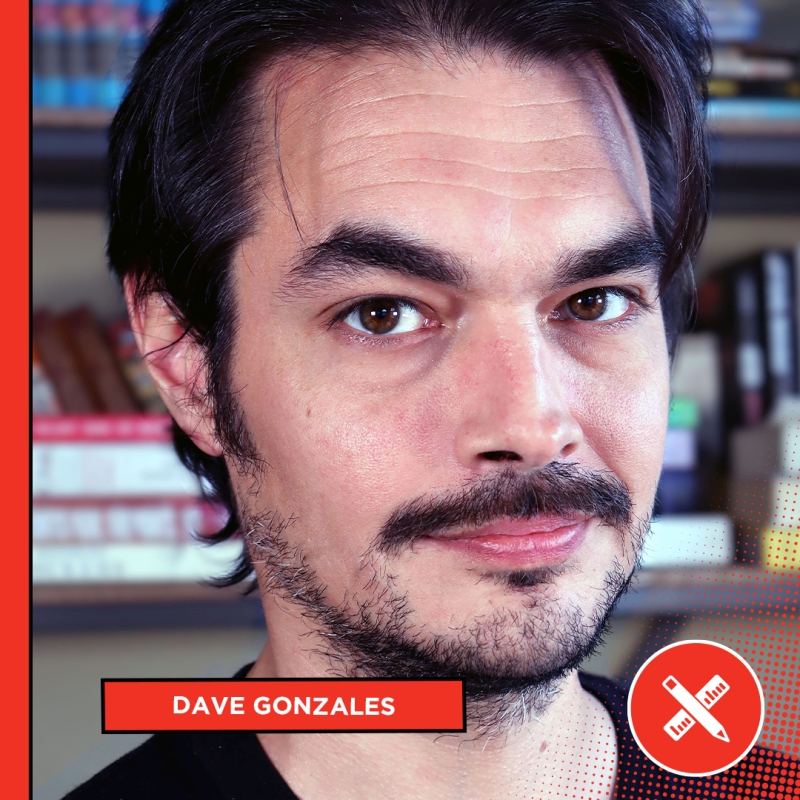
Dave Gonzales is a writer, producer and podcaster from Denver, Colorado. He has written about movies and pop culture for the New York Times, the Guardian, Forbes.com, TVGuide.com, VanityFair.com, Thrillist.com, Polygon.com and Geek.com. For LatinoReview.com, Dave wrote a weekly column about Marvel from 2013 to 2017. During his studies at New York University, he co-founded the independent “Fighting In The War Room” podcast, which is one of the top ten podcasts of 2021 according to Time Magazine. After his return to Colorado, Dave expanded his work in podcasting. He hosted “The Storm: A Lost Rewatch Podcast” and “Trial By Content” for the Ringer-network. Since 2009, Dave is a producer of animation for the Teen Mom-franchise on MTV.
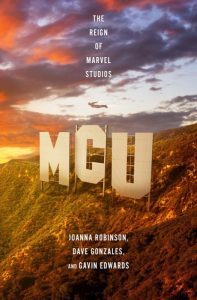
Together with Joanna Robinson and Gavin Edwards, Dave wrote MCU: The Reign of Marvel Studios, a detailed look into the rise of Marvel Studios and their revolutionary movie making successes. The book is amazingly detailed and researched, making it the perfect gift for every Marvel Cinematic Universe fan. Just like the Marvel movies themselves, the MCU book reads like a thriller. It gives a behind-the-scenes look at the sometimes heart stoppingly decisions the Marvel executives made to build the enormously successful movie studio from the ground up. Look for Jeroens bookreview of MCU: The Reign of Marvel Studios and read his interview with Dave Gonzales at Dutch Comic Con 2023 Winter Edition right here!
- A lot of comic book readers were very surprised when Marvel Studios brought Iron Man to movie theaters. We got validated by seeing the stories on screen we’ve been reading our whole lives.
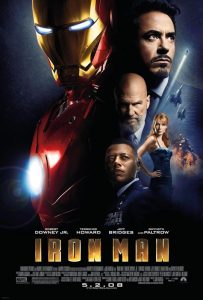
I was the same way. It was, I think, 1998 when Blade came out and then in 2000 it was X-Men and in 2002 Spider-Man. I was a X-Men and Spider-Man reader in the early nineties. That was when I was going to my local comic book store. I was like: ‘this is great! We won!’ When I was reading Spider-Man, I always hoped to see it on the big screen. And when it started happening, I was like ‘Good. That was fun, it is done’. But then it became super popular and when Iron Man came out in 2008, initially, when I heard that they were doing that, I thought it was really weird. Because as a comic book reader, Iron Man was probably best known for the storyline “Demon in a bottle”. It was about Tony Starks alcoholism. I knew about that, but otherwise, he was just another Avenger.
I was very curious to know why they started with Iron Man. And while we were researching the book, it turns out it was a focus group of children. They put a whole bunch of Marvel characters in front of them and the kids said: ‘we like the robot that can fly!’ And that was what got Iron Man pushed to the head of the schedule. The fact that they were able to start with the B-team of Marvel – they got the Hulk in there, which was probably the most popular character from Phase One – they had to convince non-comic book people that Thor and Captain America were part of the new Marvel Cinematic Universe.
- I love the MCU: The Reign of Marvel Studios book, it’s amazing to read. It’s so very detailed. I was afraid you’d leave out the comic book part, but then Brian Michael Bendis and Joe Quesada were mentioned. I was satisfied. You understand.
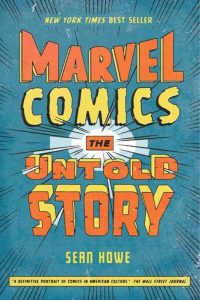
There is a really excellent book of Sean Howe on Marvel that is more focused on the comic book side of the business: Marvel Comics – The Untold Story. We read that and talked to Sean early on in the project. Just to make sure we were telling the new version, the transition from comic books to the movies and the ascendency of Kevin Feige.
- In the movies, you’ve got the story which is the comic book side. But you’ve also got the money, which is the toy side. As a comic book reader, I didn’t realize how big of a deal that was.
Oh yes, I think it’s Avi Arad (movie producer, CEO of Toy Biz and chief creative officer of Marvel Entertainment – red.), when he was pitching bankers to lift Marvel out of bankruptcy in 1998, he was like: ‘You can be a Spider-Man fan from your first pair of underoos all the way to your death. That’s the value of the property’. Once the Marvel characters hook somebody, they tend to buy a whole different set of products. Just to stay connected to the characters they love.
- I was a bit ashamed to learn that Marvel Studios was pitched at Mar-a-lago while Trump was in the room.
So were we. Actually, I gave up buying Marvel Comics during the Trump presidency. I did that, because I didn’t like how he was sort of looking to Ike Perlmutter (businessman and owner of Toy Biz and Marvel – red.) and getting advice on how to run the veterans association. So, there was a whole time period when I switched to DC Comics and independent publishers. Just because I didn’t want my money going to Ike Perlmutter and therefore to the Trump administration.
I’m very happy that we now have a different president and I can go back and catch up on the comic books I’ve missed.
- What I’ve noticed, is that Marvel is at its best when its almost broke. It started with Stan Lee writing the comics he wanted to write. Like The Fantastic Four, when Marvel wasn’t there yet and he wanted to leave the company. The same thing happened with Marvel Studios. They company was almost bankrupt and then there was this crazy idea to make their own movies. They put everything in it and it was like the Phoenix rising from the ashes. Do you think now that Avengers: Endgame made billions of dollars, it killed the creativity of Marvel? They have enough money to do with as they please.
That’s a good question. Because it is correct that now that Disney bought them, they’ll never be broke again. I don’t know how much that hurts creativity. I think that what’s been hurting Marvel post phase four and in the beginning of phase five, is Kevin Feige being spread too thin. Feige is the king of keeping business and story telling in mind. He fosters creativity, but is also not losing money for anybody. He can’t be spread across all the projects like he used to be. It was already a full time job when he was producing three movies a year. But then they put him in charge of publishing and merchandising. And so, he’s in charge of all of Marvel right now. And when you add like five Disney+ series, the quality control can vary.
What I think is great about the new phases, is they take some time of The Avengers. An Avengers movie, when you put it out, it needs to make a billion dollars. Else it is considered a failure. So, rather than do that, they’ve diversified the different stories, the different heroes they bring to the screen. Which might make less money initially. But what they did in phase one to three, they were teaching us why Thanos and the Infinity Stones were important. They were teaching us what an interconnected universe means. And now that we’re in the multiverse saga, they’re sort of teaching us how to do multiversal storytelling.
There’s some benefits to that, where you can have multiple Spider-Men show up and everybody gets to have their own Spider-Man. When Deadpool 3 comes up, he can reclaim some of the X-Men movies and say: ‘well, they may not be part of the strict MCU, but they existed in their part of the multiverse’. They have a greater capability to keep what works and sort of cut what doesn’t. There is more experimentation that’s happening. Which is going to generate some more failure.
With phase one to three, everything had to be a hit in order to make it Marvel. Now it is what it is, they are going to “tarnish” the brand a little bit, by trying different things. Ultimately I think it’s going to be fine. Because Kevin Feige has the X-Men in his back pocket. And when that comes out, it’s going to be an Avengers level brand. He’s been very patient about waiting until they have the correct idea, the correct grouping. So, I’m actually very positive about where Marvel is going. But it is interesting that when you’re strapped for money, it absolutely has to be the best idea. Because otherwise you go broke.
Dit bericht op Instagram bekijken
- In those times, you have to put your money in the best scenes, to make a hit. But now you had Shang-Chi coming out soon after Endgame. And there was this complete bestiary of fantastic beasts in the other world. They look great, but they’re only fluff. There is no story connected to them. They just show up and they’re gone again. That’s because they have money to put them in the movie, but there is no story anymore.
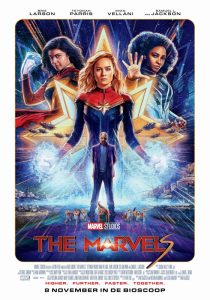
It’s the same thing with special effects. Now they have the money to pay all the special effects, you go and see something like The Marvels. It’s people with energy powers in space, which looks great. But back when they had less money to play around with, you get things like Captain America: The Winter Soldier. That movie upped the hand-to-hand combat and the choreography. It was happening on set most of the time, instead of something which has to be rendered afterwards.
- You write about Jon Favreau, writing the word “plausibility” on the wall. If you look at, for instance, Black Panther 2, you have Shuri fighting Namor and she gets speared through the abdomen. And then she stands up again, vaults over him, the spear is barely an inconvenience and she fights back, super easy. What happened with credibility?
They leaned a little bit more into the superhero powers. Plausibility was important when you were explaining these characters to people. But with the success like something as Black Panther, a lot of people have an idea of what the heart shaped herb does. Like a super healing factor. It was especially interesting in that movie, the contradiction I think you felt, was that if Shuri was able to heal from that, how was T’Challa not able to heal from whatever disease he had?
I like that movie, but I think it’s really overstuffed. Like Iron Heart being there. Great, but they could have allowed her to be her own character and not bring her in the final conflict. You have all these great actors and then in the third act, they’re all in masks, being replaced by body doubles. I think even director Ryan Coogler, who is very good at plausibility, when he’s doing his non-Marvel stuff like Creed, his realism is upped. But now he has a blank slate, he’s pushing it visually. And sometimes what you lose – like in comic books, when you can draw anything – is choosing what not to draw, because it’s too much. And now Marvel is in that spot.
- The same happened with Thor: Love and Thunder. You have the storyline of Jane and you have the storyline of Gorr, the god butcher. In comics, those are two very large, separate stories. Why put them all in one movie?
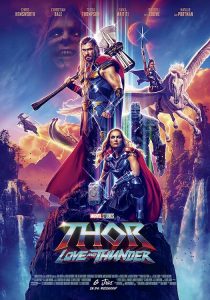
I think they added the Jane story to lure Nathalie Portman back. Because she was mad after Thor: The Dark World, which Patty Jenkins would have made. It would have been a Romeo and Juliet story, a star crossed lovers story. He’s from Asgard, she’s from Earth. It was a romance. Marvel at the time was still under the thumb of the creative committee, which represented Marvel Entertainment. And they were like, we need more of an action story.
Craig Kyle was the producer at the time, pitching Hela, who was eventually played by Cate Blanchett. But the creative committee was like, people won’t buy female toys. So, make it a male. And we got Malekith the Dark Elf.
So, Nathalie Portman was pissed she was contractually obligated to be in that movie. In the end credits scene, where she shows back up on earth and Thor gives her a kiss, that’s not Nathalie Portman. It’s Chris Hemsworth’s wife, wearing a Nathalie Portman rig. Because she refused to come back for reshoots. So, in order to lure her back into the fold, they allowed a storyline where she would be Thor.
But it still needed to be a Chris Hemsworth movie and they came up with using Gorr. Initially, they had Gorr actually kill some gods. But when they started editing it and needed to make a movie from all these different things, they lost something of the things which made the comic book stories important. The sad thing is, I don’t think we’re ever going to see Gorr back. The good thing is, I see a possible future for Nathalie Portman’s Thor to come back.
- Do you think the Barbie movie helped turning that around? Barbie is recognisable all over the world. And she is a female toy.

I hope so. We’ll see what happens. I thought The Marvels would do better post-Barbie. We are showing up for female films, we’re showing up for Taylor Swift concert movies. I thought The Marvels was really going to capitalize on that. But they haven’t been able to yet. But toy wise, absolutely, I think they’ve learned you can’t have a Guardians of the Galaxy set without Gamora. Which they tried to do after the first Guardians. And you can’t have an Avengers set without Black Widow.
Comic book readers love to have a complete set of something. And for a while, toys were considered different from that for some reason. For instance, I collect Spider-Man toys. And for some time, it was really hard to find Spider-Woman toys. Until something like Spider-Gwen was a hit in the comics. And now the Spider-Gwen toys are all over the place and you can get Jessica Drew (Spider-Woman – red.) toys. The toys have been able to diversify, now the movies have made all this money. Captain Marvel or Black Panther making over a billion dollars really sends the message to everybody that we are beyond that. You don’t have to have a white guy named Chris as the star of your movie to make a lot of money. I hope Marvel is able to push those boundaries even further.
- If you look at the comics, you have these long periods of time when the stories are a little bit dull. You had Stan Lee doing great for a long time, but when he stopped, new creatives came and there was an upsurge in surprising stories. Or when editor-in-chief Joe Quesada and Jimmy Palmiotti came and revived the line with Marvel Knights. Then that was gone until Civil War. Do you think it’s time Kevin Feige steps back and gives the reins to someone new to breath in fresh energy in Marvel Studios?
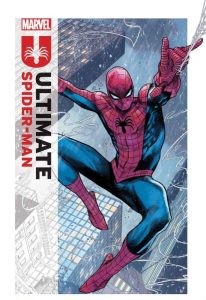
Eventually it’s going to need to happen. If that’s now is debatable. But there is a succession problem in lots of Disney companies. Who’s going to take over Lucasfilm after Kathleen Kennedy leaves? Who takes over Pixar after Pete Docter leaves? Who’s going to take over for Bob Iger after he leaves again? What you’re looking for is somebody who is willing to take risks, but is also able to provide a safe space for creatives to be as creative as they can possibly be. Something like the Civil War comic book line or the Ultimate line in the early 2000’s. Nobody was reading a Spider-Man who is a school teacher and an adult. They rebooted him for the Ultimate line and eventually that led to Miles Morales.
There is room in comic books for innovation, they are more flexible in that way. You can do Dan Slott’s Superior Spider-Man, in which Peter Parker is dead and Doctor Octopus is in his body as Spider-Man. As a long time reader, you know Peter will be back. But if it’s your first comic, you’re in this whole new world with back issues to read. I started reading Spider-Man in the early nineties, so I learned to be a fan in some of the bad Spider-Man years. The Ben Reilly years, the Seward Trainer years. The Lady Ock years (The Clone Saga – red.). I have a great love for experimentation, even if it doesn’t always work.
If you’re plugged into comic book fandom, or MCU fandom, you can treat it just as a blockbuster movie or a great comic book run. Or you can plug in and follow them through these avenues just to see where it goes. Looking forward in comics now to them relaunching Ultimate Spider-Man with Peter Parker having a family. That’s always something they have been resistant to. So much that it lead to One More Day, where they undid Peter and Mary Jane’s wedding. Now I’m happy we’re leaning into that. There is Miles Morales, there is Spider-Gwen, so now let’s see a Spider-Man with a family. I hope it’s going to be as great as the Bat-family, which is one of the greatest innovations to happen to Batman. I hope they’re able to do that on the Marvel side as well.
- In the movies, you also have the problem of the actors. Who is following Robert Downey Jr., Chris Evans, etc.? It’s like a James Bond issue. Who’s going to be the new Bond? Who’s going to be the new Captain America?
Exactly!
- When are we going to see that?
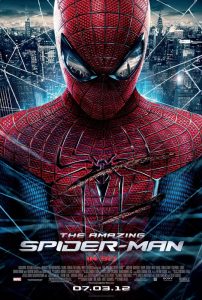
I would guess, probably after Avengers: Secret Wars. I wouldn’t expect a hard reboot. Kevin Feige is very against that. In the book we cover when Sony was rebooting Spider-Man in 2012. His production notes were like: ‘why would we see the spider bite again? Why are we starting over?’ He sees the characters as much more than James Bond. They’ll show up, or like Don Cheadle shows up as Rhodey in Iron Man 2: ‘It’s me, deal with it’.
That’s the attitude they’re going to have moving forward. Where you recognize the archetype of the character, but you don’t necessarily have to explain why it’s a different actor. That’s also part of why they’re preparing the multiverse. Someday, there is going to be a new Iron Man. Whether or not that’s Riri as an Iron Heart or it’s another billionaire weapons manufacturer played by a different actor. They’re going to be able to step into the legacy in the same way as they get a redesign in the comic books. It’s the same character with the same history, but it’s also a jumping on point for new fans.
- I like that much better. The multiverse is just too much of an excuse while putting everything in there you want too, without too much story leading up to it.
They had this problem when Marvel was pitched in 2004 in Mar-a-lago. The basis of the cinematic universe was: what if all the movies where a sequel to the movie which came previously? Because Hollywood math says most sequels make at least as much money as the previous movie. So, there is a marketing cashier in which everything is connected. Now what you’re seeing, is there is some fatigue in that. So, it’s connected, but they are pretending it’s not.
For instance, we have Echo coming up in January next year. It’s under a new banner they’re calling “Marvel Spotlight”. You don’t have to know the background to the Marvel Universe, you can enjoy this character on her own. They’re going to do Wonder Man in the same style. But if you’re a fan of the MCU, you’re like: ‘how can this be a Marvel Spotlight? You have Charlie Cox’s Daredevil in it!’. It’s an interesting marketing turn. At first, it was important to have every movie feel like a sequel of the previous one. And now they’re having to spin of some of the characters. James Gunn would call them “Elseworlds”. They have to lure in new people.
- So, to finish, what’s your favourite Marvel movie?
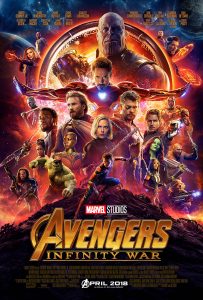
It is Avengers: Infinity War. It changes all the time. But the reason I like Infinity War, they had Thanos show up at the end of Avengers. Joss Whedon asked for it as a joke, an easter egg for fans who knew who he was. But then they realised they were going to do the Infinity Saga and they had to build up Thanos. It wasn’t until Infinity War that he got out of that chair and started doing something.
I think we’re seeing the problems they’re having with Kang right now. How do you make the big bad a giant threat? The reason I love Infinity War, I remember being in the cinema and realising they were going to let the bad guy win. We’re having all the Avengers team up, the Guardians of the Galaxy are finally here. This should be the most powerful group of heroes we’ve ever seen. And he immediately kills Loki and beats up Hulk. There was some real power in having the villain win. Letting the villain be the hero of the movie.
- It’s a question of show, don’t tell. They tell us Kang is a big bad, we don’t see it. He’s sitting there and is supposed to be the most scary man ever. Why? I haven’t seen it. Show it to me! I know it from the comics, but show it to the audience.
When Thanos shows up, he immediately body shots the Hulk in the first ten minutes of the movie. I was like: ‘this is going to be great!’. And when the movie ends, half the heroes are dead. Once again, as a Marvel fan you know better. But the bravery it took to let us for a year think Spider-Man and T’Challa were dead, was not only great marketing. It made for a great movie.
- Thank you very much!
Dave Gonzales interview – Where to find Dave
If you want to know more about Dave Gonzales, look for him at the Fighting in the War Room podcast, The Ringer, Dave & Neil’s Pop Culture Adventure and the Denver Film Critics Society.
Want to read more interviews like our Dave Gonzales interview? Go to our Interviews section!
Dave Gonzales interview: © 2023-2024 Modern Myths
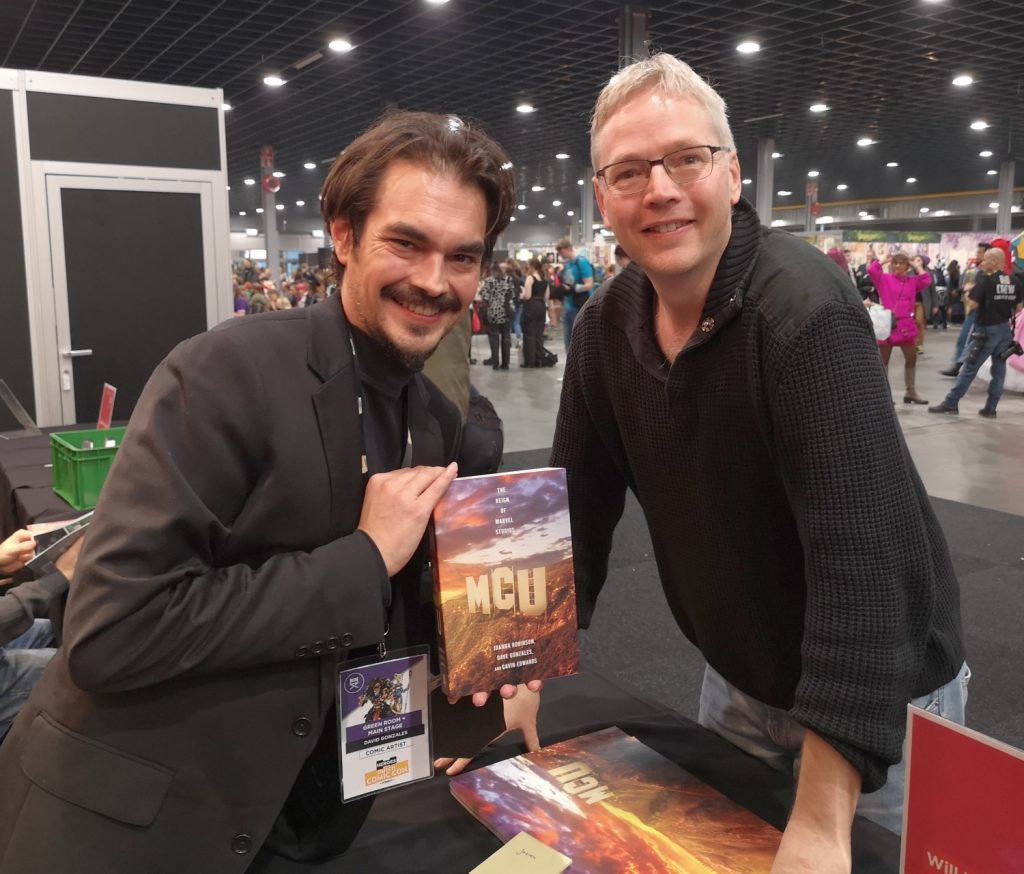

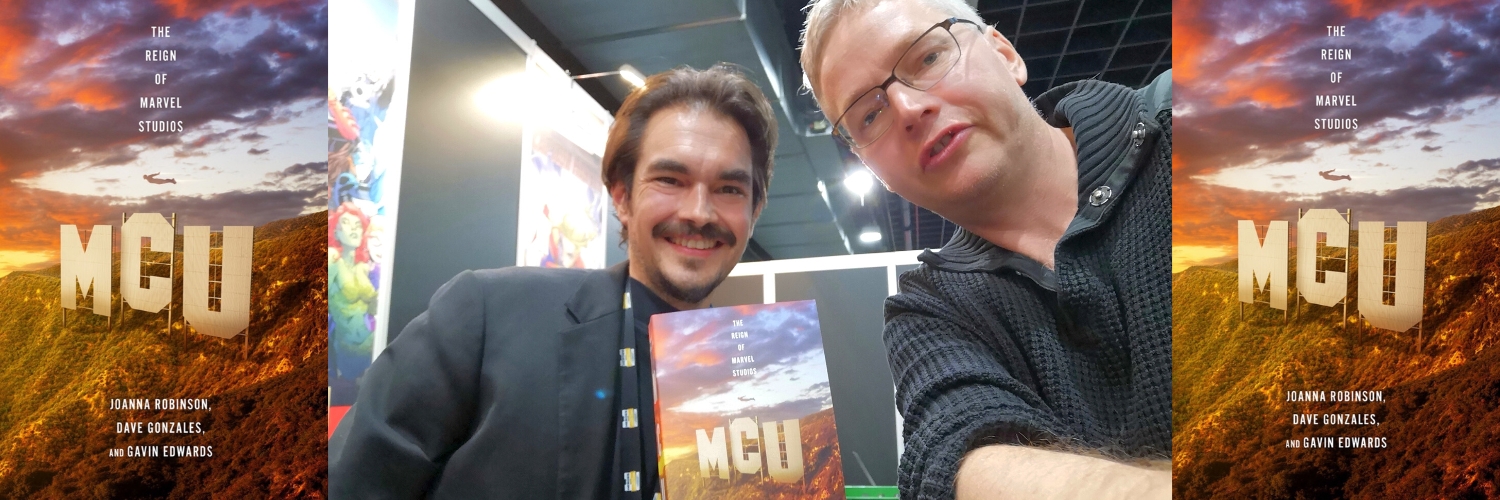







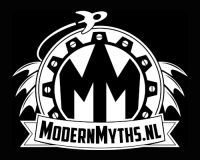
Reactie plaatsen